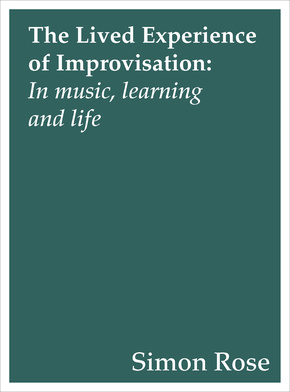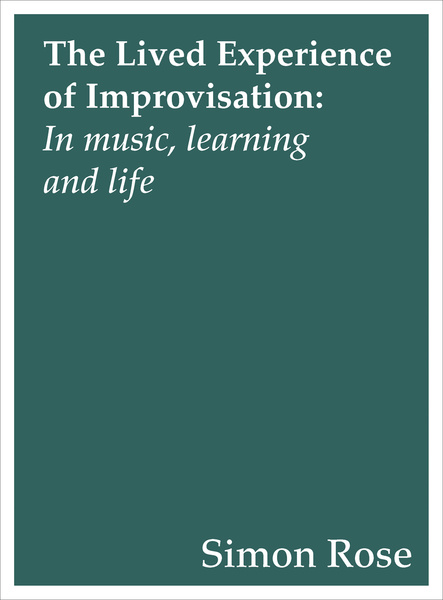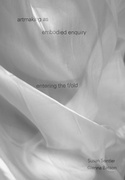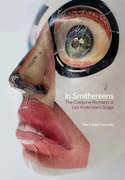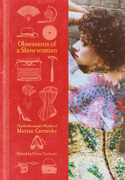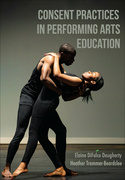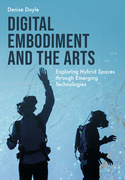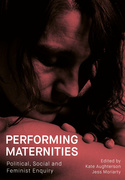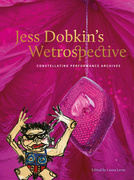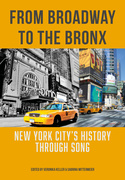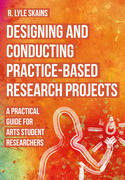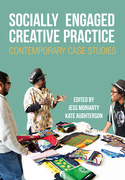The Lived Experience of Improvisation (Book)
In Music, Learning and Life
Improvisation is crucial to a wide range of artistic activities – most prominently, perhaps, in music, but extending to other fields of experience such as literature and pedagogy. Yet it gets short shrift in both appreciation and analysis of art within education. This is in no small part due to our tendency to view the world in fixed categories and structures that belie our ability to generate creative, groundbreaking responses within and between those structures.
The Lived Experience of Improvisation draws on an analysis of interviews with highly regarded improvisers, including Roscoe Mitchell, Pauline Oliveros and George Lewis. Simon Rose also exploits his own experience as a musician and teacher, making a compelling case for bringing back improvisation from the margins. He argues that improvisation is a pervasive aspect of being human and that it should be at the heart of our teaching and understanding of the world.
Edition
Preface
Part 1
Chapter 1: Human Improvisation
Chapter 2: The Development of Improvisation
Chapter 3: The Agency of Improvisation
Chapter 4: Improvisation and Knowledge
Part 2
Chapter 5: Recognizing Improvisation
Chapter 6: Process
Chapter 7: Learning
Chapter 8: Body
Chapter 9: Approaches
Chapter 10: The Capacity of Improvisation
Part 3
The Interviews
Roscoe Mitchell, Maggie Nicols, John Butcher, Pauline Oliveros, George Lewis, Mick Beck, Tristan Honsinger, Alan Tomlinson, Sven-Ake Johansson, Bob Ostertag
‘The Lived Experience of Improvisation: in music, learning and life’, makes an important contribution to this growing field of study.'
'[Rose's] book has some of the flavour of the Phd it was based on, but provides a valuable source for thinking about improvisation in all aspects... This is a rich and rewarding book. '
'The Lived Experience of Improvisation is a tremendous resource that should be included in every institutional music course syllabus, especially at the post-secondary level. Rose’s ethnomusicological themes craftily frame improvisation as a metaphor for sociopolitical and sociocultural involvement and successfully guide the reader to consider improvisation a phenomenon across broader experience. Accordingly, Rose has managed to expand upon archaic literature on the topic of improvisation—offering a fresh perspective that will be of use to both nonacademic and academic readers. Throughout the book, Rose and his panel of contributors offer the reader their wealth of experience and diverse perspectives on the topic of free improvisation and manage to integrate a method of inquiry into free improvisation that draws from a lens of phenomenology (focusing upon and interpreting participants’ experiences [idiographic] rather than seeking an aggregate of opinion across a larger sample). Within the various chapters, Rose has also managed to embrace improvisation’s unique relationship with learning and how, at the same time, constructs within education can be resistant to the modes of creative, collaborative, and embodied learning that improvisation presents. The way in which the concept of improvisation becomes constructed is centrally important as Rose has defined its role in practice, in education, and elsewhere, whilst also elucidated the potential of improvisation to remain the primary focus throughout the writing.'

